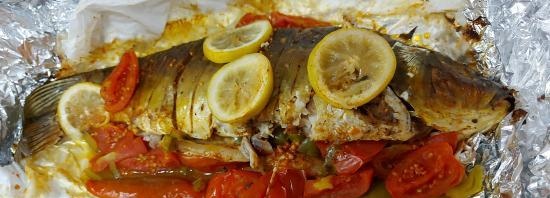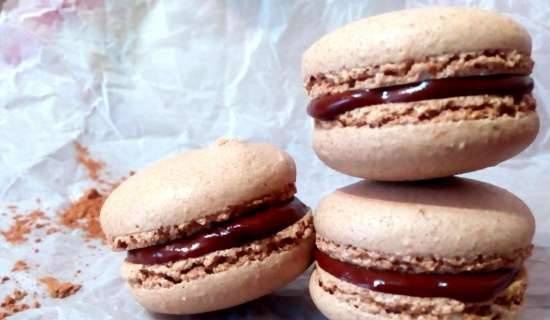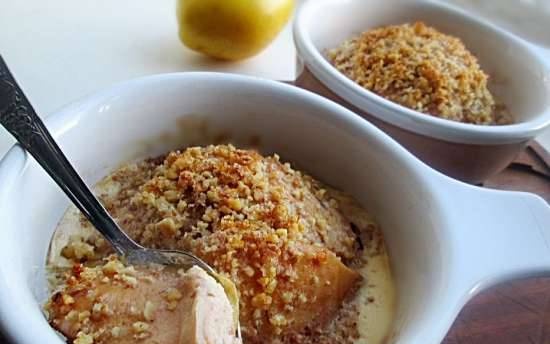Burunduk, it seems to me that anyone who actively uses herbs and begins to engage in them should definitely know the contraindications, because herbs and plants are very active! And to begin with, to know at least how this or that herb affects the acidity of the stomach, then the blood clotting and what is the reaction in the body, acidic or alkaline. Again, you cannot drive herbal teas in liters, like, in fact, ordinary usual tea and coffee.
Herbal tea and fermented tea are two big differences, as they say in Odessa. We prepare herbal tea from fresh or dried leaves or herbs. A
fermented tea is obtained by oxidation-fermentation of the leaves... During fermentation
leaf properties change -
some useful properties of the plants themselves
remain (micro and macro elements, for example).
Some are shrinking or lost (vitamins).
Still others - are modified during fermentation (bitterness leaves or a new taste and aroma appears).
Girls, I understand that you have not read all the pages of the topic. Therefore, I am placing here quotes from the posts of our
paramed1-Veronica, by specialty
pharmacist... She answers us professionally about the dangers or benefits of fermented tea from the leaves of different plants. She gets in touch once a week. Will appear, I think, will answer you in more detail. Here is what Veronica writes on the same occasion:
I got (for a couple of days) to Moscow and a normal Internet, otherwise the connection is barely breathing at the dacha. There is an opportunity to provide some clarifications during the discussion.
The topics periodically raise questions about herbs and leaves as representatives of medicinal raw materials. Girls if you want to prepare something for medicinal purposes, then it is better to do it as recommended by herbalists-pharmacognosts, i.e. dry at certain temperatures, which are different for different types of medicinal raw materials. If you ferment, you will get delicious tea, but it is TEA, not a medicinal infusion. During fermentation, medicinal substances contained in herbs, leaves, etc., change their properties... Therefore, when preparing teas from medicinal plants, those useful substances that are present in properly prepared raw materials do not always work. And the properties of herbal leaves during fermentation can either weaken, or disappear altogether, or even change.... Different parts of the plant may contain different active substances, and their different amounts are unambiguous. Therefore, most often not the whole plant is harvested for treatment as a whole, but some part of it - flowers, leaves, grass, roots.
So that if you make tea, for example, from the leaves of black chokeberry, this does not mean that it, like an infusion or decoction from black chokeberries, will reduce your pressure or act as a blood thickener.
I am a pharmacist by profession, and my grandmother taught me to herbs. From the age of five she helped her to collect and harvest grass-ants. Therefore, I went to the pharmaceutical faculty to study. And my grandmother is a military assistant, but she loves herbs very much. At one time she lived in the village, and even local health workers went to her for advice and herbs. And now the herbs are forgotten, I think, undeservedly.
Next, you are worried about what effect this or that plant has on the body:
Strawberry has an astringent, hemostatic, anti-inflammatory, choleretic, diaphoretic, anthelmintic, antimicrobial, expectorant, emollient, soothing, antipyretic,blood-purifying, antispasmodic, antithyroid, wound-healing, anti-sclerotic action, reduces the amount of uric acid and its salts in the body, has a hepatoprotective effect, regulates metabolism, improves heart function and blood composition.
... Strawberries are contraindicated in pregnancy, increased secretion of gastric juice, prolonged hepatic colic and appendicitis "
I know for sure that raspberries and other acidifying things cannot be done with gout!
That's about that and speech. For example, I have an ulcer, so I will refrain from strawberries.
Girls,
you write here about berries,
not the leaves of plants, especially those fermented... Here's how Veronica responds on this matter:
...And about the black chokeberry - Oksana, if you have normal blood pressure, that is, if you are not hypotonic in life, then you can safely consume fruits (of course, not a pound at a time), and even more tea from leaves. The medicinal properties of mountain ash have been exaggerated. It is not recommended, but again in large quantities, for people with a tendency to thrombosis. It thickens the blood, such an infection (fruits, fruits, not leaves !!!). By the way, if you add dried berries to tea from leaves, then the properties of tea, as you understand. will change too. In this case, see the properties of the plant's berries, not the leaves., because the main amount of active substances, and sometimes 100%, is contained in the fruits.
... Someone above (I can't find it, the Internet at the dacha is not the Internet at all ...) talked about the presence of hydrocyanic acid in bird cherry, since a strong smell of almonds appears during fermentation. Firstly, not hydrocyanic acid in bird cherry (and in general in all stone fruits and pome fruits, but not in all parts), but amygdalin, a glycoside that decomposes into components, including hydrocyanic acid. Secondly, hydrocyanic acid itself is very unstable, hydrochloric acid will crush it. Thirdly, in order to get poisoned, you need to ingest a decent amount of the one that contains amygdalin. And fourthly, when heated above 80 degrees, this amygdalin is completely neutralized, and only the smell remains. An example is Amaretto liqueur. And after 10 days of aging, tea made from bird cherry acquired a very pleasant fruity aroma with the addition of the smell of bird cherry flowers. Yes, if you are still afraid of amygdalin, then drink sweet tea, as sugar neutralizes it.
So, girls, there is no need to compare the effect of fruits and berries on the body with the effect of leaves, especially fermented ones.
Take the same strawberries.
Like a fresh berry, it is contraindicated in people with gastrointestinal diseases at the time of exacerbation.
In dried form, this berry will no longer act aggressively on the gastric mucosa, since vitamin C has practically collapsed during the drying process. If you use
fresh leaves strawberries for making tea, then its effect on the stomach will be quite mild. And from
dried leaves - in general, almost harmless. well and
in fermented form, the biochemical composition of the leaves has changed so muchthat it can be drunk without fear, even at the time of exacerbation of gastrointestinal diseases.
I'll give you my own example. I have the same diagnosis as Mistletoe - stomach and duodenal ulcer. Last year, during an exacerbation, I visited a doctor (my classmate, by the way) regarding this disease. At the reception, as a gift, I brought different teas - ivan tea, cherry, apple, pear, blackberry, garden strawberry. When prescribing medicines, the doctor checked with the help of instruments, this or that remedy suits me. Some medicines did not fit, he took another. In general, having picked up the medicines, he began to select their dose - also according to the instruments. I was surprised then that a tiny pill turned out to be better for me ¼ part, not a whole. And here is a large pill - 1 per dose. Then I asked him to check with the help of the device whether I could consume all the tea that I had brought him. In general, girls, all the tea suited me. Let me remind you that I had a period of exacerbation of the ulcer. But I asked this purely out of curiosity.I already knew that fermented tea had never had a negative effect on my stomach. Any tea!
I do not presume to say that with other diseases and with tea from other plants everything will be as smooth as in my case. But I know for sure - there is no need to make tea from obviously poisonous plants, as one of our girls and Veronica and I warned her in time. It is not necessary to drink the same tea for months and liters. You need to alternate tea. For breakfast, for example, from a brick, for lunch - from an apple tree ... Tomorrow I will drink a blackberry ... Well, what am I telling you ... I think that this is understandable.
Finally, I will quote myself:
Note that we primarily make tea. What is tea in general? This is a delicious and aromatic drink. Therefore, when people drink the usual Indian or Chinese tea, they (for the most part) perceive it not as a medicine. And they follow him to the store. If a person has health problems, then he goes to the pharmacy or harvests those plants that will help cope with these problems. And he doesn't really think about whether this broth will be tasty, even if it's bitter wormwood or disgustingly sweet licorice. It is necessary, then it is necessary.
So it is with our tea. The technology for making fermented teas described in the recipe is similar to the technology for producing tea all over the world. So, if you want to make tea, you must follow the conditions for its preparation, which are described in the recipe. If you want to get, first of all, medicinal benefits from plants, then you do not need to prepare tea, but simply dry the leaves or other parts of the plants. Moreover, this must be done at a temperature not higher than 40 * C.











